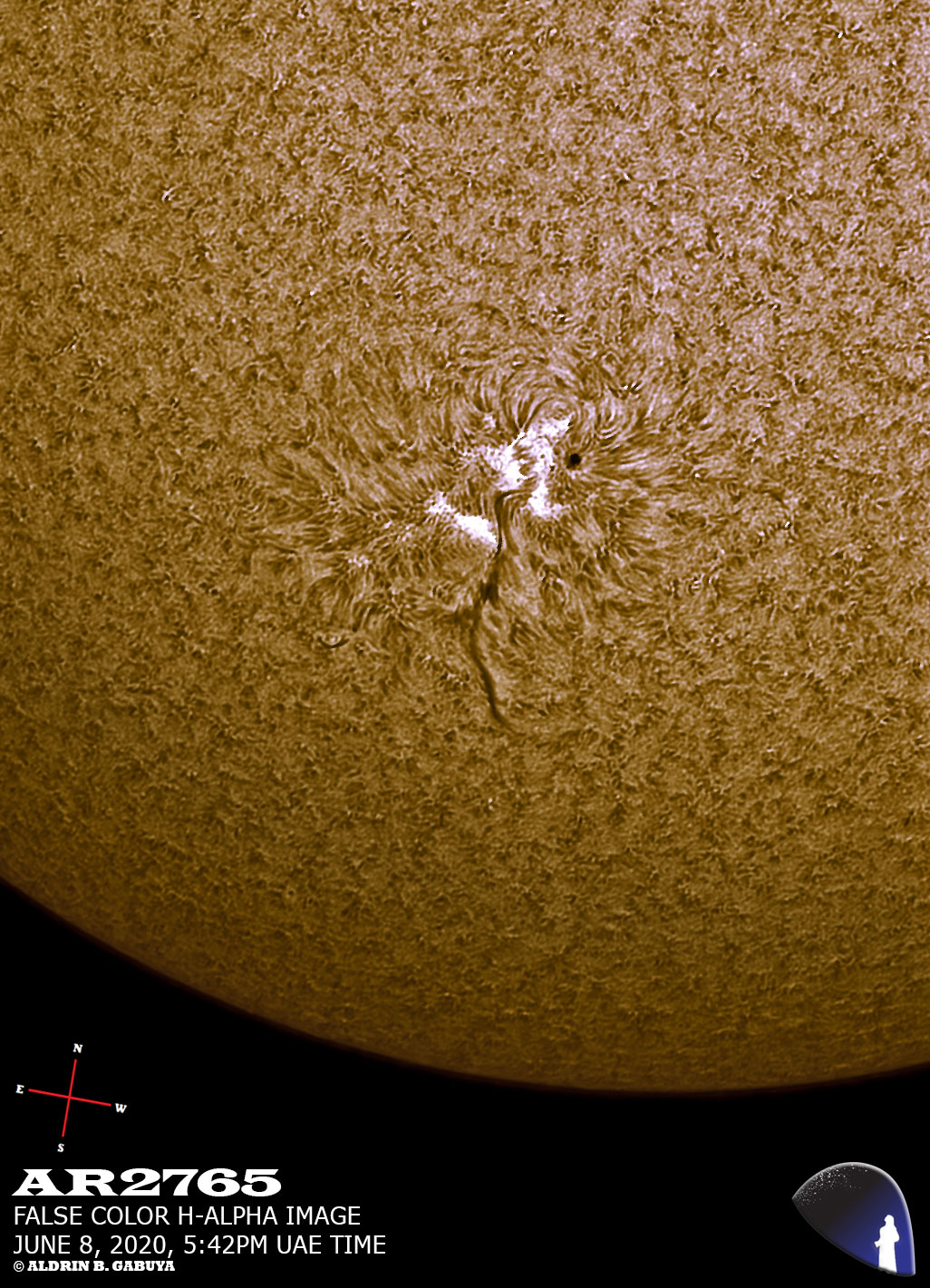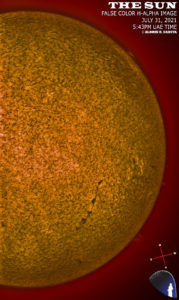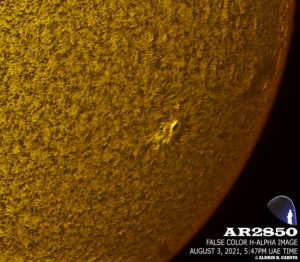Here are today’s solar images taken from Al Sadeem Observatory, June 8, 2020.
The sky was generally clear with intermittent light to moderate winds which provided good transparency but average seeing at the time these images were taken.
Despite slight decay on its trailer spots, the lone visible sunspot group AR2765 (Modified Zurich/Mcintosh sunspot configuration: Cso/beta) released a minor B-class solar flare yesterday, June 7, which was non-Earth directed. The latest sunspot number (based on visual count and Wolf number calculation) is 15. Some interesting on-going flaring activities and plasma ejections within AR2765, the gradually decaying remnant plage of former AR2764 approaching the northwestern limb, and an elongated stable filament at the far southern hemisphere were distinctively captured in H-alpha imagery.
Space weather agencies* forecast solar activity to remain at low levels with chances of weak X-ray fluxes or flares up to B-class (possibly up to C-class) intensity, mainly from AR2765. Close monitoring is being conducted by numerous space weather agencies for any significant development.
Equipment used are Skywatcher 120mm refractor telescope with Baader filter and unmodified Canon EOS 1D Mark IV DSLR camera for visible imagery and Lunt H-alpha solar telescope and QHYCCDIII mono camera for H-alpha imagery, mounted on Skywatcher EQ6 Pro. Pre-processing of visible solar images was performed in PIPP, stacking in Autostakkert, slight wavelet adjustments in Registax 6, and post-processing in Adobe Photoshop CC.
*TECHNICAL REPORTS COURTESY OF SOLAR INFLUENCE DATA CENTER (SIDC), NOAA-SPACE WEATHER PREDICTION CENTER (NOAA-SWPC)
Weather Data (5:30 PM – 5:50 PM, June 8, 2020, from NCM Al Wathba Station):
Average Temperature: 40.4°C
Average Humidity: 13%
Average Wind Speed and Direction: 18.33 kph from WNW
Average Cloud Cover: 0%
Average Air Pressure: 989.47 hPa
Average Solar Radiation: 185.67 W/m^2









